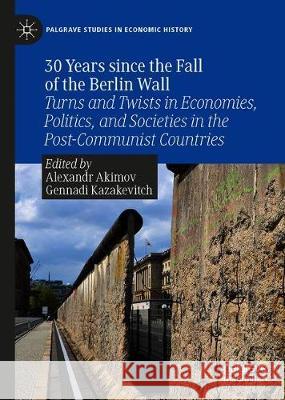30 Years Since the Fall of the Berlin Wall: Turns and Twists in Economies, Politics, and Societies in the Post-Communist Countries » książka
topmenu
30 Years Since the Fall of the Berlin Wall: Turns and Twists in Economies, Politics, and Societies in the Post-Communist Countries
ISBN-13: 9789811503160 / Angielski / Twarda / 2020 / 437 str.
30 Years Since the Fall of the Berlin Wall: Turns and Twists in Economies, Politics, and Societies in the Post-Communist Countries
ISBN-13: 9789811503160 / Angielski / Twarda / 2020 / 437 str.
cena 605,23
(netto: 576,41 VAT: 5%)
Najniższa cena z 30 dni: 578,30
(netto: 576,41 VAT: 5%)
Najniższa cena z 30 dni: 578,30
Termin realizacji zamówienia:
ok. 22 dni roboczych
Bez gwarancji dostawy przed świętami
ok. 22 dni roboczych
Bez gwarancji dostawy przed świętami
Darmowa dostawa!
Kategorie:
Kategorie BISAC:
Wydawca:
Palgrave MacMillan
Seria wydawnicza:
Język:
Angielski
ISBN-13:
9789811503160
Rok wydania:
2020
Wydanie:
2020
Numer serii:
000462744
Ilość stron:
437
Waga:
0.69 kg
Wymiary:
21.01 x 14.81 x 2.54
Oprawa:
Twarda
Wolumenów:
01
Dodatkowe informacje:
Wydanie ilustrowane











